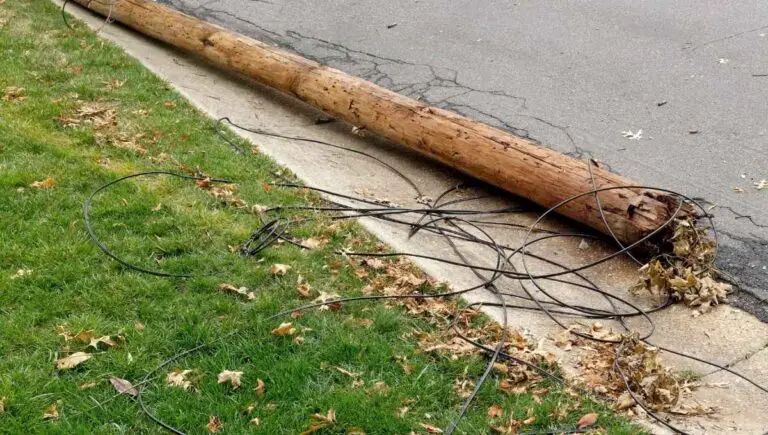Is It Legal to Have a Horse in Your Backyard?

If you have a big piece of property and are thinking about getting a horse, you might be wondering is it legal to have a horse in your backyard. You could also be in the situation where you already own a horse and just want to keep it at home to avoid expensive boarding fees. Whatever the reason, one very important thing to find out is whether or not it’s legal to have a horse in your backyard.
Keeping a horse in your backyard may or may not be legal depending on where you live. Generally, if you want to keep your horse in a residential property, you will need to obtain a zoning permit from the local council. That said, it is your responsibility to check on the zoning laws in your area.
There are many considerations to keep in mind when keeping a horse in your backyard. If you need more guidance, this article has all the helpful tips you will need.
Can I Have a Horse on My Property?
Horses have been a part of humans’ lives. If there are dog people, there is also a community of horse lovers. In fact, the numbers say that an estimated two million people in the United States own horses. Bringing the horse to your property is going to be an exciting experience. But is it even allowed?
The short answer is yes; generally, you can keep your horse on your property. However, it will be a big responsibility to have a horse in your backyard since you’ll be thinking about food, pasture, and stabling among other things. In addition, if you want backyard horse keeping to be legal, you need to meet extensive requirements from the government.
Can You Have Horses in Residential Zoning?
Residential zones usually include single-family residences, suburban homesteads and other places of residence such as apartments, trailer parks, duplexes, and condominiums. When it comes to keeping animals, residential zones do not require common domestic pets (cats, dogs, birds) to be regulated.
However, the same thing cannot be said of farm animals such as horses. When keeping horses in residential zones, the owner needs to meet certain requirements. Depending on your state, there are laws that do prohibit keeping farm animals in residential areas.
In some cases, there is only a limit on the number of animals you can keep relative to the size of your land. That said, it is important to always check your zoning laws.
How Do You Know If a Property Is Zoned for Horses
Since horses may be allowed in a residential zone, provided certain requirements are met, then how would you know that keeping a horse in your backyard is acceptable? Is there a way to tell that your property is zoned for horses?
You can contact your local planning and development department or you can use services found online. There are sites that offer mapping tools to find zoning information for properties found in certain states. This should help you make an informed decision should you want to purchase land or use it as a horse property.
Can You Have a Horse in Your Backyard in Texas?
Texas is the number one state that has the most horses – around over one million of them. Texans just love horses and if you’re wondering about backyard horse keeping in this area, the answer is yes. You can keep a horse in your backyard but only if you provide the right amount of space for your horse.
How Much Space Do You Need to Keep a Horse?
In most states that allow horsekeeping in a property, land space is an important consideration. Most laws for owning a horse ensure the welfare of the animal, such that it should be placed in a stress-free environment.
It is recommended that one horse should at least have two acres of land. Another one acre should be allotted to each additional horse. This amount of space helps avoid overgrazing of pasture, as well as ensure the land is managed well.
If you need land mainly to allow your horse to exercise rather than let it meet its nutritional needs (i.e. the horse gets daily access to fresh hay), then a smaller land area may suffice.
This will still depend on the state, county, and city where you live. For instance, Colorado requires horse owners to have five acres of land for one horse; in Texas, it should be one acre per horse. In the end, the space you need for your horse will depend on the requirements set by your state.
Can You Keep a Pony in Your Backyard?
Since a horse is a larger animal, you might wonder if rules differ when you want to keep a smaller animal – a pony, perhaps. You might ask, “can I have a pony in my backyard?” You’ll be glad to know that in most states, ponies are allowed for backyard keeping.
A pony is just a miniature horse and they are adorably amazing animals that are wonderful to have around. And since they’re way smaller than a horse, they won’t need that much room or a land to graze on.
In most states, keeping a pony in the backyard can be done without any issues as long as you provide at least 1/3 acre of land for them to exercise and graze on. And as always, it pays to check your local ordinances and zoning laws before you make the decision of having a pony.
Can You Ride a Horse in a Neighborhood?
Owning a horse means more than just letting it trot around your land, feeding and grooming them, and giving them routine health checks. These are important responsibilities of a horse owner but you also need to think about riding them or letting them out.
Riding your horse in the neighborhood is necessary, especially if you don’t have that much land space. This will help your horse fight boredom and the exercise is good for their health too. But the question is, can you and should you ride your horse in your neighborhood?
There may be people who will see riding a horse in a neighborhood unacceptable. They might even wonder if it’s illegal. But the thing is, most states generally don’t have laws preventing horse owners from riding their horses in public streets. All the more if you are riding a horse on low-speed roads.
What the local council will require, though, is to make sure you clean up after your horse. On the other hand, horses are not allowed on highways and interstates for obvious safety reasons. If you’re unsure about horse riding in public streets, we recommend checking your city ordinances to confirm.
Can You Keep a Horse in the City?
You may assume horses should be placed in rural areas and away from cities. But you’ll be surprised that they are allowed to be kept in urban settings as well. The laws may vary from city to city but horses can, indeed, be city dwellers.
Overall, the keeping of livestock in the city is prohibited but with some exceptions, you can bring home your equine friend. Livestock such as horses can be kept in residential zone areas in the city as long as you meet the following requirements:
- Horses should have enclosures – your horse should have a well-maintained enclosure that will prevent them from breaking out or escaping. If you have a barn where you keep the animal, make sure you maintain it and do repairs when necessary.
- Fences built should also be maintained in good condition and should not ruin the appeal of the surrounding.
- In addition to aesthetic appeal, enclosures should also be maintained, such that it wouldn’t become a health hazard.
While you may be compliant with all the requirements so you can keep your horse in the city, there are several challenges that you should expect. For one, not all people in your area will welcome the presence of a large animal. You might have to deal with neighbors who will complain about the smell of horse poop or the flies that it will attract.
However, if you’re diligent enough with horse care and maintenance, you can be successful at having your equine friend in the big city.
Conclusion: Can You Keep a Horse at Your House?
Keeping a horse in your home means you get to spend a lot of time with it and see it all the time. If you don’t want to spend on expensive boarding fees, moving the animal to your own property may be the best option.
In conclusion, it is legal to have a horse in your backyard, as long as you give the space the horse needs. This also means horses in residential neighborhoods are allowed and should not be subject to a complaint from a neighbor.
However, this will still depend on where you’re living. Different states, counties, and cities have different laws of owning a horse. To make sure you won’t get in trouble, it’s best to check with your local council regarding zoning laws and the rules of keeping a horse in your backyard.






